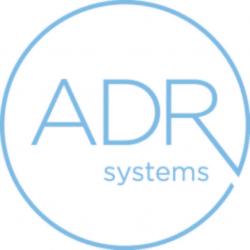Successful arbitration preparation relies on a clear understanding of the process and its best practices. To explore the finer points of arbitration preparation, we sat down with Hon. Kay M. Hanlon, (Ret.) and Hon. Stuart A. Nudelman, (Ret.), senior mediators and arbitrators at ADR Systems. Together, Judges Hanlon and Nudelman bring more than 65 years of combined experience overseeing trials and arbitrations, and they have seen firsthand what makes arbitration work — and what doesn’t.
Early Decisions
There are many moving parts to arbitration. Can you tell us about critical decisions that are made before the arbitration starts?
Judge Nudelman: Often litigation has been initiated between parties before arbitration. There are times, however, when arbitration takes place before a lawsuit has been filed. In either case, the parties have some very important decisions to make. In commercial cases, counsel for both sides decide on a one- or three-person (tri-panel) arbitration panel. Whether there is a single arbitrator or three arbitrators – all arbitrators are neutral decision-makers. Depending on the size and nature of the case, counsel must strategize about the need for one or three arbitrators. In addition, the scope of the arbitration must be considered.
Judge Hanlon: Selecting the right arbitrator is critical to ensure that the hearing is run efficiently and that an unbiased, well-reasoned award is produced. Possibly the most important benefit of arbitration is having the ability to select the arbitrator who will hear your case.
Judge Nudelman: Arbitration is really a private court system – parties select their own judge, make their own rules and select their own timetable. You effectively give up billing time and the right of appeal when you go to arbitration. However, you save time and money and have more control over the process, and clients like that.
Process Considerations
What else should counsel consider?
Judge Hanlon: Attorneys should take advantage of the flexibility of the arbitration process. Counsel can discuss how they want the arbitration to unfold and attempt to agree on the key procedural aspects of the hearing, including scope of discovery, number of witnesses, scheduling and timing, etc. They memorialize their agreement regarding how the arbitration will proceed. They also may include evidence stipulations which save time at hearing. Attorneys don’t often think of arbitration as being flexible, but you can tailor your arbitration to fit the unique needs of your case.
Judge Nudelman: There are a litany of things parties must consider before arbitration: what rules will be used, what provider will administer the arbitration, the powers the arbitrator will have, the schedule for the arbitration, the extent of motion practice, the parameters and timeframe for discovery, the date or dates for the hearing, what type of arbitration process will be used and whether the parties want a reasoned decision.
Regarding arbitration processes, there are many to choose from such as high-low, binding or non-binding, baseball, night baseball and others. Some of these things may be outlined in the arbitration agreement, but not always. Even if the arbitration clause calls for a certain set of rules or administrator, parties can agree or stipulate to others. Options abound when parties can agree; however, it’s not always easy for counsel to do so. If they cannot come to an agreement, they can ‘decide’ to have the arbitrator determine those issues.
Communication
Judge Hanlon: Arbitration works well when counsel can cooperate with each other. All commercial arbitrations at ADR Systems begin with a pre-arbitration conference call in which the participants, counsel for both sides, arbitrator and case manager discuss how the arbitration will proceed. Since ex parte communication is not allowed, the case manager serves as the conduit for information flowing to the arbitrator. If there is a question for the arbitrator, counsel contacts the case manager who contacts the arbitrator.
In these early conference calls, I ask the parties to identify the key issues to be decided and the key documents that will be produced. This establishes boundaries for the arbitration proceedings and helps the arbitration run smoothly. In addition, I will enter a final order which will determine the specifics of the evidentiary universe for the arbitration.
Settlement Attempts
What about settlement before arbitration?
Judge Nudelman: We cannot forget that counsel must communicate effectively as soon as possible, as Judge Hanlon alluded to in her comment about ‘cooperation.’ Prior to arbitration, counsel can try to settle the case themselves or at least eliminate some issues. Sometimes, parties will ask me to mediate before the arbitration, or they may get another mediator to see if that will help to settle the case.
Judge Hanlon: There is often a med-arb clause in the contract requiring the parties to mediate before going to arbitration. In fact, mediation can happen before arbitration or even during arbitration. It takes some coordination of schedules to make a mediation happen during the arbitration process, but it’s not impossible to navigate.
Judge Nudelman: I agree with you. I welcome the chance to help parties resolve their dispute, but I’m careful if the parties want me to mediate or help them to settle the case prior to arbitration. I never speak to one side without having the other side present. Mediation and arbitration are two different processes – ex parte communication is available in mediation, but not in arbitration.
Whether parties try to settle their case before arbitration or go straight into planning for an arbitration hearing, counsel will avoid missteps by meticulous preparation.
Careful Preparation Leads to Successful Arbitration
Proper arbitration preparation lays the foundation for a streamlined and productive proceeding. From selecting the right arbitrator to setting clear procedural expectations, each decision made early on can have a lasting impact on the outcome. In our next conversation with Judges Hanlon and Nudelman, we’ll shift focus to the common pitfalls that can arise during arbitration — and, more importantly, how to avoid them.
…………
Hon. Kay M. Hanlon, (Ret.) has expertise in resolving personal injury actions such as medical malpractice, mass torts and product liability, as well as commercial actions such as legal malpractice, eminent domain and subrogation. As a jurist and neutral, Judge Hanlon is always prepared and ready to listen attentively. Her open and friendly demeanor is known throughout the legal community. Her personality is tailor-made for her work as a mediator and arbitrator.
Request Judge Hanlon’s Availability
Hon. Stuart A. Nudelman, (Ret.) is a senior mediator and arbitrator at ADR Systems. He is highly experienced in commercial, personal injury and complex construction matters, among many others. He has resolved more than 2,000 mediations and arbitrations throughout the United States in the past eight years.
View Judge Nudelman’s Full Bio
Request Judge Nudelman’s Availability
ADR Systems, It’s Settled.®





